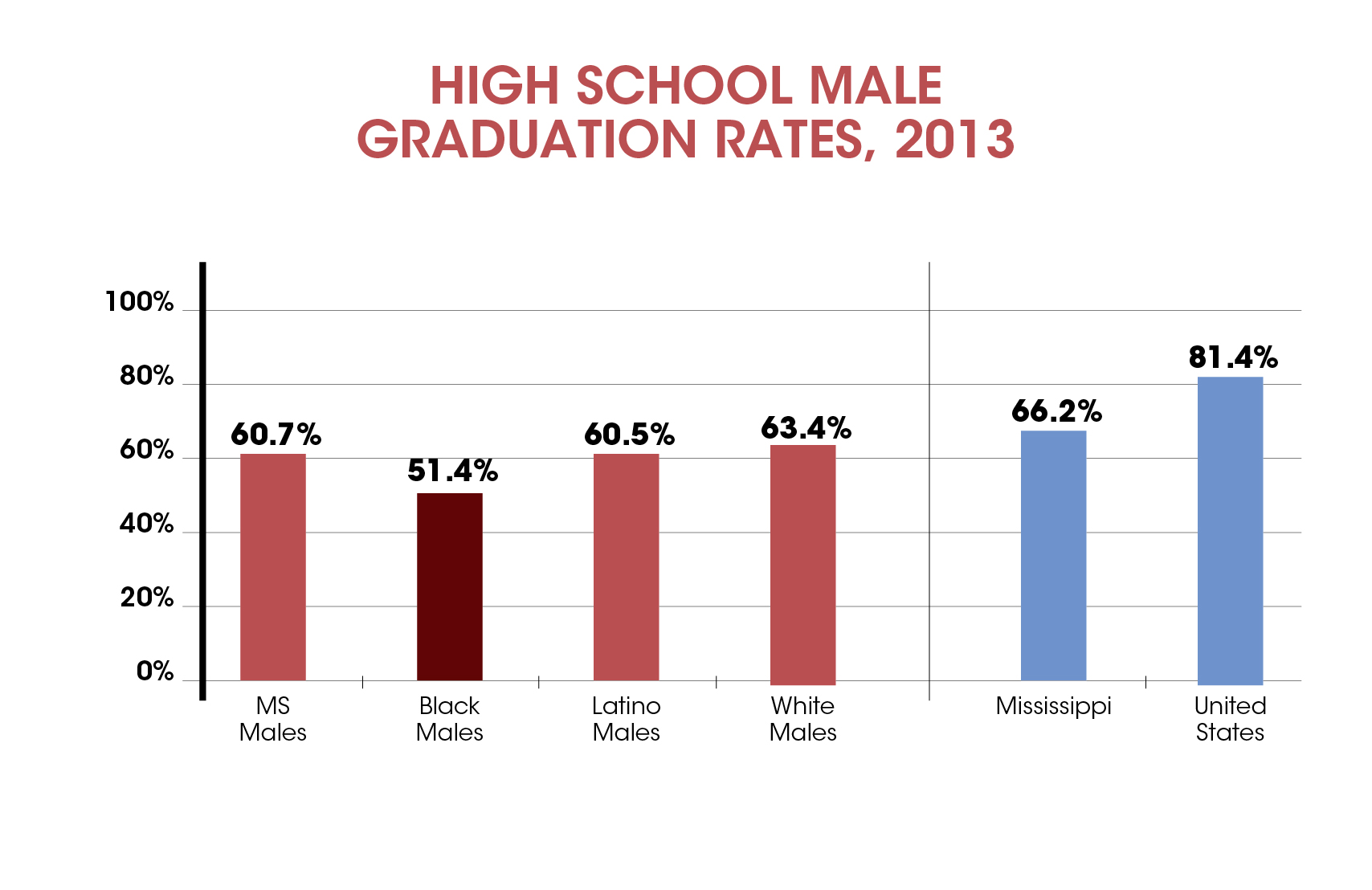Low graduation rates leave Mississippi Students at risk
October 19th, 2015
Graduating high school is a major determinate for success later in life—future income, health outcomes, and economic and family stability are all positively affected once a student walks across the stage. However, only half of Mississippi’s Black male high school students graduated on time in 2013, leaving the other half economically and socially at-risk. The factors influencing graduation rates for Black males are complex and require comprehensive strategies to change graduation outcomes. An example of a comprehensive strategy includes an effort led by Tougaloo College, the Mississippi Action Network for Uplifting Promise (MAN UP) project, aimed at addressing and identifying environmental factors by creating a connected system that helps students stay in school, get the support they need and complete their education, and be ready for future work.
An important component in developing programs to support Mississippi students, especially Black males, requires understanding certain data outcomes including graduation rates. In Mississippi, males graduate at a lower rate than the national average. Black males in Mississippi graduate at an even lower rate.
When students fail to graduate or complete a high school equivalency, they are unable to access higher paying jobs and instead are sidelined to lower paying and low-skill jobs, often without crucial benefits which allow them to support themselves and a family. These issues are particularly true for Black males in Mississippi, a population that experiences 13.4% of unemployment compared to a state average of 6.3%.

From increased school funding to poverty alleviation, there are numerous approaches to improving high school graduation rates. More Mississippi students graduating from high school means a more qualified workforce and improved economic competitiveness for Mississippi. It means better jobs and salaries to support workers and families which then translate into increased tax revenue for the state. Improving graduation rates for Black males and all Mississippi students ensures a better livelihood for students now and in the future while strengthening the state economically and socially.






